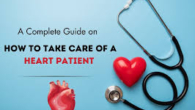
10 important Understanding Medicines and What They Do: A Complete Guide to Their Role in Healthcare
Understanding Medicines and What They Do: A Complete Guide to Their Role in Healthcare
Introduction: Understanding Medicines
Understanding Medicines and What They Do: Medicines play a fundamental role in healthcare, as they help manage, prevent, and cure a wide variety of conditions. From common colds to chronic diseases, the right medicines offer relief, healing, and support for our overall health. While we might use medicines regularly, understanding their functions, categories, and possible effects is crucial in making informed health decisions. This guide provides a deeper insight into what medicines are, how they work, their history, different types, and the importance they hold for society.
History and Evolution of Medicines: Understanding Medicines
10 important Understanding Medicines and What They Do: A Complete Guide to Their Role in Healthcare: The use of medicinal substances dates back to ancient times. Herbal medicines were often the first line of defense for treating diseases. Ancient civilizations like the Egyptians, Greeks, Chinese, and Indians documented plant-based remedies that remain in use in modern medicine. However, medicine evolved dramatically in the 18th and 19th centuries when researchers isolated chemicals from plants or created synthetic drugs.
The major breakthroughs in pharmaceutical science include the invention of antibiotics (e.g., penicillin) in the early 20th century, which revolutionized the treatment of bacterial infections. Today, medicines range from basic pain relievers to complex biologics designed to treat diseases at the molecular level.
What Do Medicines Do?
Medicines primarily serve two core purposes:
- Treatment: This refers to medicines that help in managing or curing a particular condition. For example, antibiotics fight bacterial infections, insulin manages diabetes, and chemotherapy drugs treat cancer.
- Prevention: Some medicines help prevent diseases, improving overall health by reducing risk factors. Vaccines, for example, prevent certain infectious diseases, while statins lower cholesterol to reduce the risk of heart disease.
Additionally, palliative medicines are used to relieve symptoms like pain or discomfort when a cure isn’t possible, as in the case of painkillers for arthritis or terminal illness management.
Types of Medicines and Their Roles: Understanding Medicines
Medicines come in various forms and serve different roles. Here are the most common categories:
- Over-the-Counter (OTC) Medicines: These are available without a prescription, such as aspirin for headaches or antihistamines for allergy relief. These are usually for mild symptoms or everyday use.
- Prescription Medicines: These medicines are prescribed by doctors to treat specific medical conditions. They are usually stronger and may have more potential side effects, such as antibiotics for infections or antidepressants for mood disorders.
- Generic vs. Brand Name Medicines: Generic medicines are essentially the same as branded ones in terms of active ingredients, dosage, and effects, but they are typically cheaper. Both options are available through healthcare providers and pharmacies.
- Herbal Remedies and Supplements: These include natural products like ginseng, turmeric, and garlic that have been shown to support wellness in specific ways. However, they should be used with caution, as they might interact with prescription medicines.
How Medicines Work in Our Bodies: Understanding Medicines
Medicines work through complex interactions within the body, depending on their mechanism of action. When we ingest or apply a medicine, its molecules are absorbed into the bloodstream or targeted area and interact with certain cells, enzymes, or receptors. For example:
- Pain relievers, like acetaminophen or ibuprofen, block enzymes that produce chemicals causing inflammation or pain, providing relief.
- Antibiotics target specific parts of bacteria, either killing them or stopping their growth.
- Blood pressure medications can dilate blood vessels, reduce fluid in the body, or slow the heart rate, depending on the specific medicine.
Importance of Medicines in Society: Understanding Medicines
The importance of medicines extends far beyond individual use—they contribute significantly to public health and the longevity of human life. Their role in medical care has led to remarkable improvements in survival rates, especially in chronic conditions, infections, and preventive health. Some ways medicines positively impact society include:
- Increasing life expectancy by treating conditions like hypertension, diabetes, and heart disease.
- Preventing epidemics and improving public health through vaccines and antiviral drugs.
- Improving quality of life for people with chronic illnesses by managing symptoms and preventing disease progression (e.g., asthma, arthritis).
Possible Side Effects and Safety Considerations: Understanding Medicines
While medicines can significantly improve health, it’s important to acknowledge their side effects. All medications have the potential for unwanted reactions, ranging from mild symptoms (like drowsiness or stomach upset) to severe complications. That’s why it’s essential to take them as prescribed by a healthcare professional and report any adverse effects promptly.
In addition to following dosage instructions, patients should:
- Be aware of drug interactions: Some medications can interact with others, affecting their efficacy or causing harmful side effects.
- Always store medicines properly, away from extreme temperatures or humidity, to ensure their effectiveness.
Conclusion: Understanding Medicines
Medicines are invaluable tools in managing and preventing health problems. By understanding the role they play and how they work, we can make better decisions regarding their usage. Whether it’s for the treatment of a minor headache or the management of a life-threatening disease, the right medicine can make a significant difference in our well-being.
It’s essential to approach medicines with respect, educating ourselves about their uses, possible side effects, and the science behind them. A thoughtful and informed approach to taking medications not only ensures their effectiveness but also keeps us safer and healthier in the long term.











Leave a Reply